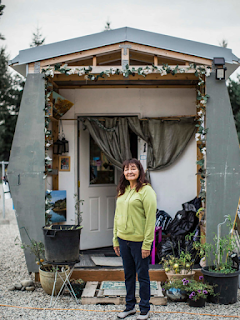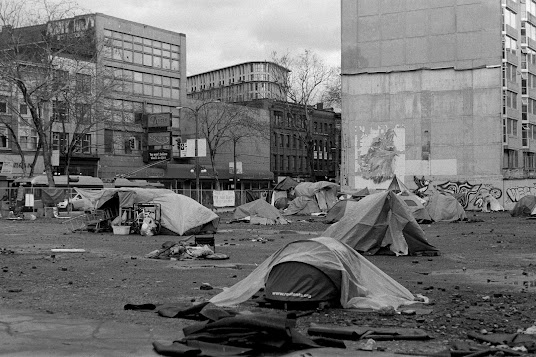I was eight years old when, on 21st December 1982, my parents were married in my grandparents’ living room. It’s the second marriage for them both. A few days later, right after Christmas, we moved from North Idaho to Redwood City, California—Docktown Marina.
For the first year and a half or so, we lived on a boat, at first when she was in dry dock (and there were rules against dry dock living, but no one cared). At one point, we even lived out of a motel room. Then, after they finally lowered her into the water. Docktown was along a slough, near a couple other marinas: Pete’s Harbour and Peninsula Marina. Each one was a small town where everyone either knew or recognised everyone else.
At one point, my parents sold the boat, and bought an old school bus that had been converted into a camper. Then, we moved in and parked alongside the road, just outside the marina. We lived there for several months.
I knew it was unique. Most kids didn’t live on boats, and even less lived on a bus. At the same time, it felt normal. I was with my parents. Dad still worked. We had food and water, and access to the marina showers. To me it didn’t feel any different from living on the vessel, except for the obvious.
Christmas had come and gone in the camper-bus. My brother turned one year old that March, and we still lived there, dad periodically firing up the bus to keep the battery alive.
One day, I went to a movie with a friend. When I returned, I thanked my mother for letting me go see the movie. Then, I was about to do homework, and she told me not to bother. Apparently, while I was gone, the sheriff came along and told my parents we couldn’t stay there anymore. Three days later, we were heading back home to North Idaho.
As I said, it felt normal to me. As a child, and most of my adult life, I didn’t realise anything was weird about it. Not until a couple months ago, and I’m forty-eight. I was doing some homework, and it hit me that we were no different from the families we see living out of their cars, or campers. We were still better off than many who are forced to camp on the streets, but we were houseless.
Even houseless, as we were, I didn’t feel the chains of poverty dragging at us, not until the following fall when we moved to Portland. Our house in Saint Johns was tiny. The thin walls barely kept out the chill, and bowls and buckets scattered inside to catch the rain.
Mom was a stay at home, with two toddlers and me, when I was home from school. So dad would sometimes have to work two jobs to make ends meet, to ensure our survival.
This poem was written many years ago and then published in a poetry magazine called Windfall. Windfall is now defunct, but at one time it was ran by two retired creative writing professors at Portland Community College. During their time, they published many well known writers from the Pacific Northwest, including Ursula K. LeGuin. I was lu9cky to have two poems included during their run. This is one of them:
Reaganomics
In fifth grade, I’d stand for hours on Saturday mornings,
in damp hand-me-down clothes as the drizzle clouds
flowed through Portland streets, waiting for a five pound brick
of government cheese, baby formula, diapers, and cornmeal.
Monday to Friday, I’d walk a mile to school, rain or shine,
for free breakfast—the canned fruit medley, powdered eggs, milk
and the free lunch, the Salisbury steak, hotdogs, institutionalised pizza,
Last night’s supper—baby formula and corn meal mush
glued to our ribs,
smothered our bellies, muffled their weeping,
buried in the same old shit as the day before.
Dad sometimes worked two full time shifts
to keep this decaying roof, these rotting walls around us,
blocking out the winter, so we wouldn’t have to huddle
in the back of an old car, warmed by stale breath and blankets.
The floor beneath Christmas tree lay naked
in the flashing red and green lights
strung between plastic branches,
while the stockings hung unfed,
crucified by thumbtacks
to cracked barren walls.
Santa Reagan punishes children
nurtured in poverty.
© Windfall-Spring, 2017
Nathan Tompkins


.jpeg)









